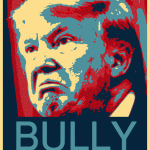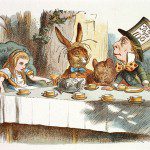
This weekend my family and I will attend the wedding of two dear friends, both of whom happen to be women. One of them, a clergy colleague of mine, spent many evenings with us seven years ago holding our newborn son (and obsessively watching Lost). Now our seven-year-old son and his younger brother will attend her wedding and not think twice about the fact that she is marrying a woman. Same-sex relationships and marriages are a normal part of the world they live in. (Modern Family is a favorite in our house.)
This was not the case when I was growing up, mostly in suburbs and small towns in the South. We played “smear the queer” and homophobic slurs were part of our common language. Any lesbian or gay characters I remember from television or movies were caricatures or negative stereotypes. In the churches of my childhood and youth, homosexuality was unequivocally condemned.
The #GiveElsaAGirlfriend hashtag—an online movement petitioning Disney to make Elsa a lesbian princess in Frozen 2—is one of many attempts to change this. Created by a teen activist named Alexis Isabel Moncada, the hashtag has gone viral. As she writes on MTV.com:
Growing up, I never saw a princess fall in love with another princess — and neither have girls growing up right now. The entertainment industry has given us girls who have fallen in love with beasts, ogres who fall for humans, and even grown women who love bees. But we’ve never been able to see the purity in a queer relationship.
Reflecting on her own developing sense of self, she concludes:
I hadn’t been aware that there could be true love between women, so when I felt that love, I felt confused and alone.
This is why Elsa is so much more than a poster image — for me and for every girl who has and will watch Frozen. Giving young girls the chance to understand that a princess can love another princess the same way Cinderella loved her Prince Charming is vital to their development. No one deserves to feel isolated and confused about who they are. All we need is someone to show us that there are other options, other kinds of princesses, and other ways to have the happy ending that you deserve.
Writing for The Daily Beast, Kevin Fallon notes that Disney films—intentionally or not—have sent mixed messages to LGBTQI children through the years. Creating an openly gay character would provide an important opportunity for identification.
When you grow up gay, or wondering if you might be gay, you search for yourself in any way you can in these tenets of pop culture that become integral parts of your childhood, which are highly influential in the person you become and the attitudes you have about certain morals. It’s not just gay people who do this. We all do; it’s just harder for some of us to see ourselves.
We see ourselves in the outcasts, those who are different. Dumbo, with his big ears, or Pinocchio, who doesn’t share the same human makeup as the rest of the kids, physically manifest the otherness we feel inside. We empathize with Peter Pan’s desire to stay in Neverland and Mowgli’s hesitance to leave the jungle. It’s where they feel safe and accepted. Who knows how their uniqueness would be treated in the real world?
And wouldn’t it be nice to see ourselves without undercurrents of shame? That’s why #GiveElsaAGirlfriend has exploded.
Ironically, Disney played a key role in my own journey toward progressive Christianity. I was a college student preparing for ministry when the denomination in which I grew up, the Southern Baptist Convention, called for a boycott of Disney in the summer of 1997. Southern Baptist leaders condemned Disney for profiting from the coming out of Ellen DeGeneres, “Gay Days” at Disney World, and providing benefits for same-sex partners of employees.
The senior pastor of our little Southern Baptist congregation happened to be out of town the week this decision was made. The associate pastor preached at the morning worship service and I was given the opportunity to preach at the evening service.
In the morning the associate pastor praised our denomination for standing up against “unbiblical” practices. But in the evening, I said the exact opposite. “I’m sorry if what I’m about to say offends you,” I declared, “but I cannot remain silent on this issue.” Something new was churning inside of me. Though I hadn’t yet changed my fundamentalist understanding of human sexuality, I knew that there was something wrong with this politically motivated act by the leaders of my denomination. I compared it to Jesus’ critique of the Pharisees, whom he said were quick to judge others while ignoring their own shortcomings. Most of all, this boycott seemed to me to contradict Jesus’ core message of love and acceptance, not to mention his relentless practice of hanging out with people on the margins of society. “Why would a gay person even consider stepping foot into a Southern Baptist church today?” I asked. “Is this the way Jesus would have acted?” It was a defining moment for me.
I applaud teen activists like Alexis Isabel Moncada. One way or another, what she has done with #GiveElsaAGirlfriend will make a difference. If her movement is successful and Disney does in fact include openly LGBTQI characters in their stories, it would be a huge step forward.
But even if this doesn’t happen—yet—backlash from the religious right and conservative Christianity further demonstrates how out of touch these movements are from the people they claim to care about. And maybe—just maybe—this contrast will create an opening for the Holy Spirit to move within the hearts and minds of those trying to follow the way of Jesus in a changing world, like it did for me 19 years ago.












